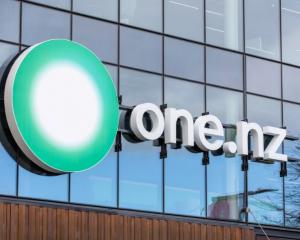As expected, the Reserve Bank left the official cash rate (OCR) at 1.75% yesterday, given the lack of pressure from inflation on the economy.
With the Reserve Bank's ongoing neutral stance, analysts are still picking the OCR will remain unchanged and on hold until mid to late-2019.
Acting Reserve Bank governor Grant Spencer said monetary policy would remain "accommodative for a considerable period", in his update yesterday.
Westpac chief economist Dominick Stephens said the "accommodative" phrase had been used "more or less unchanged" since February last year.
The Reserve Bank statement contained no indication that any of the recent economic data developments had changed the Reserve Bank's view, he said.
"The Reserve Bank acknowledged that gross domestic product data was weaker than expected, but said it still expected the economy to strengthen," Mr Stephens said.
The Reserve Bank also described house price inflation as "still moderate", but Mr Stephens said that was despite a run of slightly stronger housing data in recent months.
Thirteen economists polled by Bloomberg had predicted the official cash rate would stay unchanged, and the median expected the bank to stay on hold until at least 2019, BusinessDesk reported.
The Reserve Bank's mandate is for inflation to be at the mid-point of a range of 1%-3%.
Mr Spencer said, in the short term, consumer price inflation was expected to weaken, due to "softness" in food and energy prices and adjustments to government charges, such as tertiary tuition fee cuts, but over the medium term was forecast to trend towards the mid-point target range.
"Longer term inflation expectations are well anchored at 2%," Mr Spencer said.
ASB chief economist Nick Tuffley said a "good chunk" of Mr Spencer's policy assessment was set aside for the inflation outlook.
"The Reserve Bank acknowledged that, largely due to government charges and lower food and energy prices, CPI inflation is expected to weaken in the near term," he said.
If that was the case, Mr Tuffley said it would represent a further downward revision to the Reserve Bank's inflation forecasts.
BNZ head of research Stephen Toplis said there was no market reaction to Mr Spencer's update "as there was nothing to react to".
Mr Toplis said the Reserve Bank's stance was "in stark comparison" to that of the US Federal Reserve central bank, which released a monetary policy announcement yesterday, its first under new Federal Reserve chief Jerome Powell.
"While the Reserve Bank is happy to sit on its hands, the Fed is all go," he said.
The Federal Reserve yesterday raised interest rates for the first time this year and forecast at least two more hikes for 2018, signalling growing confidence that United States tax cuts and government spending will boost the economy and inflation and lead to more aggressive future tightening, Reuters reported.
The Federal Reserve lifted its benchmark overnight lending rate by a quarter of a percentage point to a range of 1.50% to 1.75%.
Mr Toplis said there were good reasons why the Federal Reserve was being more aggressive than the Reserve Bank.
"Core inflation is closing in on the Fed's target much more rapidly than core inflation in New Zealand," said.
The US economy was perceived to be closer to full capacity, Mr Toplis said.
However, Mr Toplis "continues to struggle" with the Reserve Bank's belief rates in New Zealand could stay as low, and for as long, as currently predicted.
"If the Fed is right about the state of the US economy, then this means that New Zealand will be facing a more inflationary world," Mr Toplis said.
The Federal Reserve hike was the latest step away from years of stimulating the world's largest economy in the wake of the 2007-09 financial crisis and recession. The Federal Reserve tightened US monetary policy three times last year, Reuters reported.











